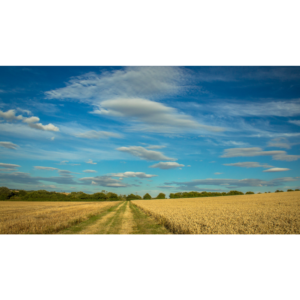17 year-old Christian Yeung wins the Harbinger prize in Humanities

September 29, 2023
My 50th birthday: A world without food
I wake up in my bed on what would usually just be another sunny warm morning on Mars. Today, however, is a special day. Today is the day I turn 50.
I groggily get up and head towards the pantry to grab a pack of full English Breakfast. I pour the powder into my cup and after a couple of shakes, I chug it down. If I try hard enough, I can taste a slight hint of eggs, sausages and potatoes. In the evening, my wife surprises me with a birthday cake shake and we try to imagine we’re eating the real thing as we each take a shot of the drink. Delicious.
We have long since run out of the real stuff, and now, even money can’t buy you a slab of steak or a fresh egg anymore, let alone a whole cake. I yearn for even a shadow of the texture of proper food. Of course, the scientists had tried to recreate it, but it just wasn’t the same. I mean, it could be worse. They had predicted that with our increasingly carnivorous diets and growing population we were going to starve a couple of years back. At least now with the powders we consume, humankind perseveres for a little longer. But is life really worth living without the prospect of ‘real’ food?
This future where real food doesn’t exist anymore may sound like quite a bleak and dystopian future. But if the doomsday-clock-esque website The World Counts is anything to go by, this future is far closer than we think with the 26-year timer we find ourselves on.
We may be able to find food alternatives with enough nutrients, but where should we draw the line on what is food and what is not food, while at the same time keeping our planet alive and us, the humans, happy?
As far back as the late 18th century, economist Thomas Malthus predicted that food was going to run out. Thankfully, his prophecy was not realised as birth rates declined and food production increased in the years that followed.
However, the conversation has ignited once more now. We recently passed 8 billion people on Earth and the United Nations predict that figure will be 9.7 billion by 2050, presenting us with our first problem: the volume of food produced is inadequate to match the raw number of mouths to feed. However, the second problem could be more feasible to solve: the way society eats.
People have started to follow the “Western diet”, consisting mainly of highly inefficient and unhealthy meats and processed foods. Between the extra food and water required to feed these animals, as well as the extra processing and transportation, meat generally requires 75 times more energy to produce than corn. The combined total global greenhouse gas emissions of all cattle on earth are second in the world only to the total emissions of China.1
If we were to shift towards a more plant-based diet, the efficiency of our energy consumption would increase. However, it is estimated that even if every single person on Earth were to go entirely vegetarian, the Earth’s soil would only ever be able to support 10 billion people which is predicted to be surpassed in 2100.
Having examined the second problem, we return now to the first: the question of sustainability and nutrition. In this discussion, two types of food come to mind: fake meat that food companies such as Beyond Meat produce, and powder meal replacements by companies like Huel.
Beyond Meat claims that compared to a ¼ pound of real meat, it uses “99% less water, 93% less land, 90% fewer greenhouse gas emissions and nearly 50% less energy.”
In an interview with Forbes, Huel’s CEO James McMaster said that according to their data, Huel is a “low carbon footprint food,” while also “preventing almost two million pounds of food waste to date [2021].”
However, many of these numbers come from analyses commissioned by the companies themselves, and therefore cannot be independently verified. Additionally, our current technology only allows for foods with simpler molecular structures – such as patties – to be replicated. Other, more complex foods – such as whole pieces of steak, for example – cannot be replaced yet.1
Still, even if these foods are much more sustainable than the status quo and provide humans with necessary nutrition, how far is too far? We weren’t created to consume powders for the rest of our lives. The colours, smells, textures, flavours, and even sometimes the sounds food makes contribute to our wellbeing.
Yes, our physical health might be ensured if we drink nutrient shakes, but the pleasure of eating – an important, and often overlooked aspect – will be gone.2
If we continue down this path, we could eventually reach a time when food is a powder – or even worse – an IV drip of sorts.
For me, and most other foodies, the question persists, is a life without ‘real’ food worth living?
I wake up in my bed on what would usually be just another sunny, warm morning on Earth. Today, however, is a special day. Today is the day I turn 50.
I groggily get up and head towards my pantry and cook myself a full English breakfast. The eggs came from the coop in our backyard, the tomatoes from our small farm plot. The sourdough was homemade, of course, and everything else came from the nearby farmers’ market. In the evening, I enjoy a celebratory dinner with my family and a nice chocolate cake to go with it.
Just a few decades ago, we were on a trajectory of over-consumption that would have made such a celebration impossible.
For years we had shunned activists and scientists, ignoring the heralds of the end of food as we knew it. But the cumulative and inescapable effects of war and climate change forced us to wake up from our slumber of ignorance.
Big Agriculture could no longer silence the demand for sustainability and had no choice but to work with scientists, academics, activists, as well as indigenous and rural communities to find a way to upscale traditional forms of cultivation and animal rearing.
The balance between sustainability, nutrition, and quality can be struck. Humankind’s current attempts at finding alternatives to food itself have only led us down a rabbit hole of food that begins to look and taste less like it.
By focusing instead on improving how food is grown and reared we would be able to strike this balance. Inefficiency – particularly with regard to food waste – has been a big reason for the growing concern that we will run out of food.
Every year, 20% or more of food grown – enough to feed two billion people – is discarded for cosmetic reasons or overserving.
Modern innovations, such as the use of AI in logistics and handling, as well as laser-levelled fields and automated tractors, could both help the farming and storing of foods. Even a change in the attitude we have towards food: focusing on aesthetic and unhealthily large portions in the food industry, will drastically reduce waste.
Modern-day farming methods prioritise revenue over all else. In the past, traditional farms used nutrient-rich animal manure from the animals on their farms as fertiliser.
The monocrop structure most farms now use, where agriculture and animal rearing are separated, it hardly makes sense to be transporting manure from a cattle ranch to cornfields.3 Upscaling traditional farming methods such as mixed cropping, integrated crop-animal farming and agroforestry are all solutions to increase biodiversity.
Drawing upon traditional and indigenous knowledge would reduce crop failure, while drastically increasing productivity and sustainability.4 Traditional Sri Lankan agroecosystems, for example, prioritise developing biodiversity and sustainable practices by having animals, plants and microbes work alongside one another, thus creating not only a far more organic farm but also a more sustainable way of farming.
By taking a step back from the capitalistic venture that agriculture has become and instead looking at it as a method to cultivate our Earth while feeding us, we might just be able to survive a little longer.
Farmland was never intended for such large areas of monoculture. Like a human body, it can only flourish when given varying nutrients and diversity.
With our current way of farming, we can never expect for agriculture to be sustainable.
There is a future where our meals will begin to resemble the ones we see in dystopian media, one where powders and slop are the norm.
There is also a future where our meals consist of fresh produce and meat that are perhaps even tastier and more nutritious than what consumers have now.
It is a fact that we as humans cannot sleep, think or love well if we do not also eat well. So, for the sake of having a real chocolate cake on my 50th birthday, and for the survival of the human race as a whole, let our future be the latter.





